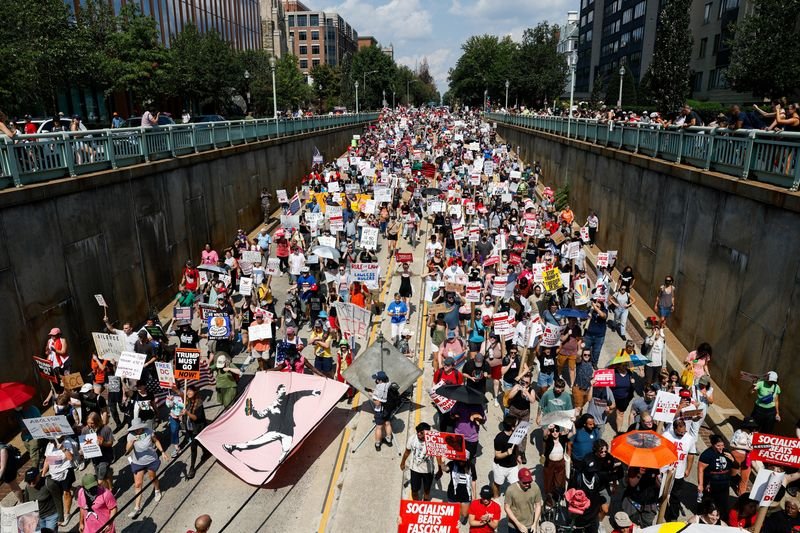Washington, DC, Residents Protest Against Trump’s Troop Deployment
Residents of Washington, DC, took to the streets in large numbers this week to voice strong opposition to former President Donald Trump’s decision to deploy federal troops to the nation’s capital. The move, aimed at quelling demonstrations and ensuring public order, has instead ignited a new wave of protests from locals who see the deployment as an overreach of presidential power and a threat to civil liberties.
The atmosphere in the city has grown increasingly tense, with activists, community leaders, and ordinary citizens calling for the removal of troops and a return to civilian-led policing. Demonstrators argue that the military presence creates fear rather than safety and undermines the constitutional rights of residents.
Background: Why Trump Deployed Troops to Washington, DC
The deployment comes in response to ongoing political unrest, marked by demonstrations against Trump’s policies and leadership style. While the former president has defended the action as necessary to “restore law and order,” critics contend that Washington, DC, was not facing conditions that justified such a show of force.
Under federal authority, Trump ordered troops to key areas of the city, including around federal buildings and near protest hotspots. The presence of heavily armed soldiers in residential neighborhoods has been described by residents as intimidating and excessive. Legal experts have also questioned whether the move violates principles of federalism and the balance between civil and military authority.
Local Reactions and Growing Opposition
The backlash from Washingtonians has been swift and vocal. Crowds gathered outside the White House and along Pennsylvania Avenue, carrying signs denouncing the militarization of the capital. Civil rights organizations have joined the protests, warning that the use of troops in civilian areas sets a dangerous precedent for the future.
Many residents expressed concern that their voices are being silenced. “We came out to protest peacefully, but instead of listening, Trump sent in soldiers. This is not democracy,” said one protester, highlighting the growing frustration across the city.
Broader Implications for Civil Liberties
The protest in Washington, DC, is part of a broader national debate about the use of military forces in domestic affairs. While federal law does permit troop deployment under certain conditions, such actions have historically been rare and controversial. Analysts note that Trump’s decision could embolden future presidents to use military power against political dissent, raising long-term concerns for American democracy.
Observers also warn that the troop presence risks escalating tensions rather than calming them. Clashes between protesters and soldiers could deepen divisions at a time when the country already faces political polarization.
What Comes Next
As protests continue, the question remains whether Trump’s troop deployment will persist or face legal and political pushback. Lawmakers in Congress have already demanded explanations, with some calling for hearings to investigate the decision. Advocacy groups are also preparing legal challenges, arguing that the move infringes on residents’ constitutional rights.
For now, Washington, DC, remains at the center of a heated national conversation about security, democracy, and the limits of presidential authority. The coming weeks will reveal whether public pressure and political opposition can reverse the deployment, or if the capital will remain under the watch of federal troops.
Also Read More: South Korea Deems U.S. Release of Workers’ Arrest Video “Regrettable”

